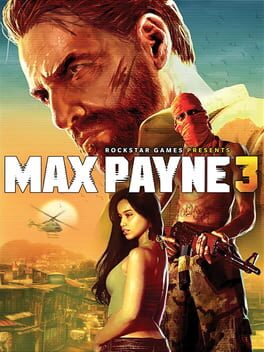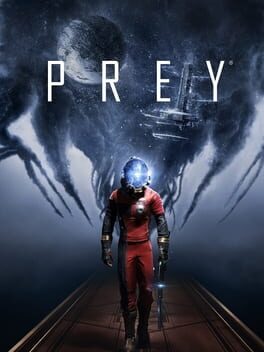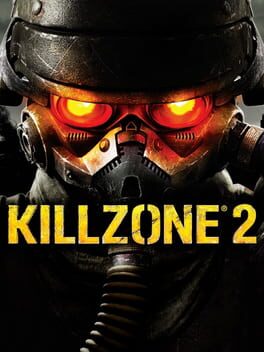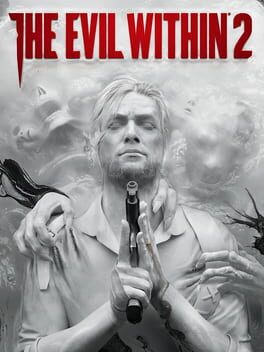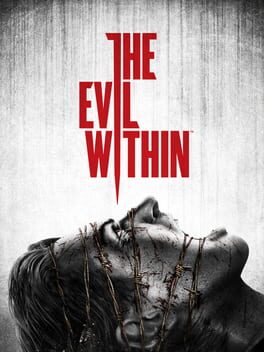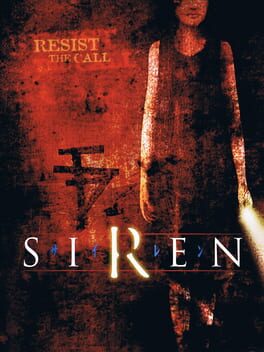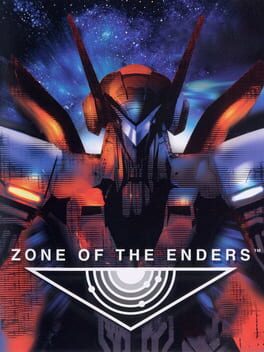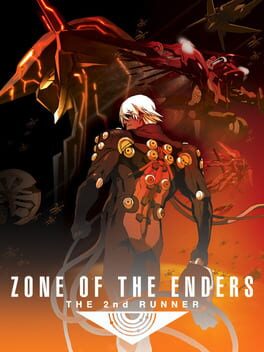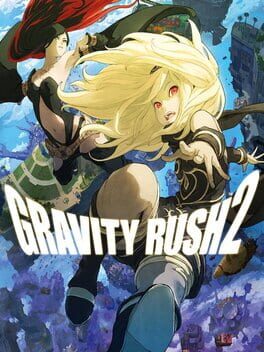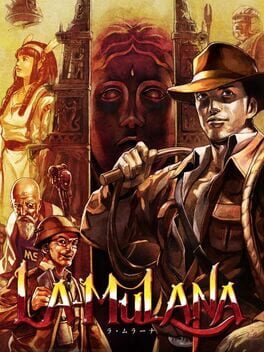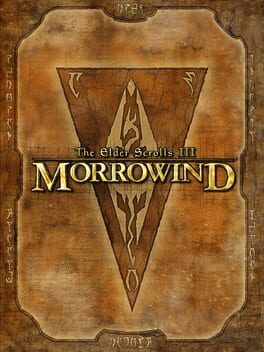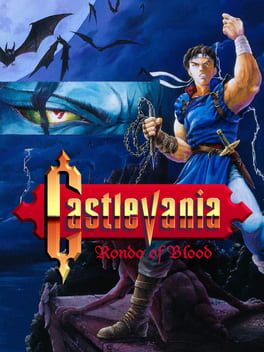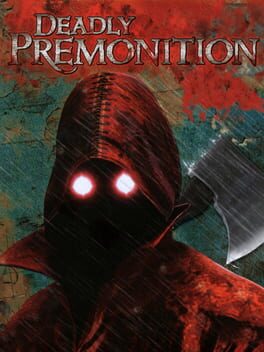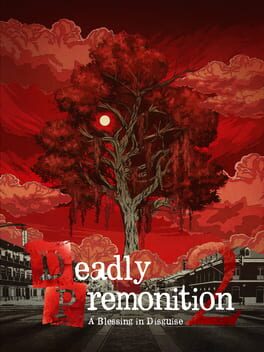grouperfan1996
10 reviews liked by grouperfan1996
SWAT 4
2005
MotoGP 3
2003
Max Payne 3
2012
Elden Ring
2022
Prey
2017
Killzone 2
2009
as far as this particular lineage of call of duty-influenced single player first person shooter campaigns goes, killzone 2 is top of the line and is consistently underappreciated and devalued for it. machinegames scattershot efforts with the new wolfenstein saga could only dream of approaching this level of lumbering oppressiveness, this heavyweight orchestration of life and limb struggle with fearsome artillery that takes the drab grit and muddy colour palette common to the seventh generation of shooters and molds it into a bold statement. lightning in a bottle for an otherwise bad franchise, testament to the value of aesthetics in a shooter
The Evil Within 2
2017
ive always felt the first evil within represented a pitifully directed attempt at something of a horror anthology, mikamis mythic final shot at a title that cobbled together the familiar imagery of his deific body of work with over a dozen new and incohesive ideas that ended up fitting together about as well as a broken jigsaw puzzle. it's one of the rawest disappointments in the medium; its successor replaces the originals dim and misguided attempts to foster a thrilling, psychological weight with a riproaring extravaganza through shattered suburbia and dingy back-alleys infected with competing egos and the subconscious. it's a modern title that perfectly replicates the tone and thrust of classic resident evil's brand of stark horror and schmaltzy optimism; if that doesn't appeal to you, i understand, but it's such a treat in modern gaming to be able to actively and sincerely cheer for a protagonists relatively unambitious goals and his raimi-esque awakening to fearlessness. ends up asking some unique questions of its own, too - just a really memorable package overall, one that i feel is way too easy to dismiss for some. in narrative structure it unabashedly wears resident evil 4 on its sleeve, too, and this is primarily worth mentioning because it's one of the few derivatives with the confidence to stand on its own and to not have me questioning if i should abandon all further engagement to go and replay resident evil 4 instead. its gameplay loop overextends its warm welcome but it is a surprisingly taut title until that point, and the open-district form led to some stirring surprises. removing mikami from the helm seemed like this burgeoning franchise's death knell, but in this instance it's a strong argument for allowing new talent to step in and try their hand at the craft
The Evil Within
2014
i remain convinced this game will have its overdue reevaluation. the evil within (aka PSYCHO BREAK) is peak video game horror with just the right balance of jank and big budget bombast. silent hill with the grimy, glistening, bloodsoaked aesthetic of a SAW movie. resident evil 4, the last of us, and killer7 are other points of reference. it begins strangely enough, and it only continues to get stranger—very much a descent into things darker and more apocalyptic, always threatening to break the fourth wall with its apparent absurdity but always stopping just short of explicitly doing so. indeed, rather than ultimately push outward from its glass prison, the narrative draws inward, refracting upon itself, convincing us that what we see is really happening while its unreality compounds and entraps us. our uncertainty—sebastian's beleaguered mental state—is reflected in the instability of the environment, the suddenly and constantly wrenching contortion of the world around us: ruvik's world. ruvik, the mind exerting the most control over this layered simulacrum reality. not insignificantly, sebastian can only overcome the chaos by retreating further into the nightmare by way of a safe room entered via mirrors...
replaying this to prepare myself for finally giving the evil within 2 a try. seems most would say otherwise, but i consider it to be one of the peak game experiences of the 2010s.
replaying this to prepare myself for finally giving the evil within 2 a try. seems most would say otherwise, but i consider it to be one of the peak game experiences of the 2010s.
The Evil Within 2
2017
oof. well, i'd like to give it some more time before i decide how i feel about it, but the pc port is so poorly optimized and stuttery that i think i have to give this one a pass until i can pick it up on ps4 for cheap or something. first impressions, though? i made it about as far as meeting the first moebius dude at a safehouse, whereupon the game made it very clear that it was going for more of a tepid bethesda fallout + the last of us kind of thing than the first game's blistering survival horror madness. not so sure i'm into that. doesn't help that sebastian's voice actor is different and he has such a different look and vibe it's like a completely different character. same with kidman. like, i'd be down to play more and see what it has to offer, but... not like this. another time, perhaps. bummer.
Siren
2003
if silent hill 2 chose to take the path of character study through environment & enemy design that the original silent hill created potential for, then siren chose to build upon sh1's fascination with the occult and the opaque culture and backstory behind the town. for a long time i felt like the cult stuff in sh1 makes it inferior to its sequel, as if it was nerdy lore that got in the way of directly tackling how characters' motivations are projected externally. i don't feel this way as strongly now, but i do think siren is the better exploration of "cult stuff", things that writers toyama and sato are clearly into, than how it was explored in the previous project they worked on.
this is partly due to siren being more formally experimental and more challenging to the player, in more ways than one. you've heard plenty about siren's cryptic gameplay, making it impossible without outside help, and toyama has stated that this was intentional. the aim was that there would be discussions about the game's story content AND figuring out how to progress, influenced by japanese arcades having notebooks in which players wrote hints and secrets for helping others through infamously difficult games, like tower of druaga. we can't engage in that kind of at-the-moment discussion at this point of course, but looking up walkthroughs or otherwise asking others online for help in how to complete, or even just unlock, the second objectives fulfills a similar purpose: engaging with internet as part of the experience of the game.
understanding that is key, as siren both frames itself as inextricable from the internet AND replicating the experience of taking in information through the internet. the game aims to disorient you in the same way the internet disorients your sense of time and space of things: the timeline-jumping plot with 10 playable characters with an excel-grid link navigator as the hub, the sterile and "objective" feeling menu ui, the archive of collectable items of which the descriptions contains the majority of story information, the fact that some of the story exists outside the game itself online in the form of extra short stories, fake forums posts, in-fiction websites that might be gone by now. all this gives the game an impression that you are lost in a labyrinth of databases as you learn more and more, colored by anthropological annotations and paranormal conspiracies--some of them actual real ones being referenced.
siren is a game with a looming sense of doom, leaving you fumbling to make sense of it, only able to come away with reasonable interpretations of things at best. it handles that slow slide into hopelessness better than any horror game i can think of, and that database-atmosphere works to make it feel like it's with your own gradual understanding of things, not just the plot beats, that this slide can be applied to. siren 2 is close to being as good, and many would reccommend it as the friendlier experience, BUT (besides its combat being worse and the plot not having as much impact) its missing what gave siren 1 its lasting impression for me, and thats its daringness to have you unable to grasp at both the full story AND its gameplay sequences on your own. whether asking someone on discord or looking into a years old gamefaq written by some ancestor, siren having you tackle that communal aspect makes it feel ahead of its time, predicting how soulsborne games would do it years before demon's first tried it.
this is partly due to siren being more formally experimental and more challenging to the player, in more ways than one. you've heard plenty about siren's cryptic gameplay, making it impossible without outside help, and toyama has stated that this was intentional. the aim was that there would be discussions about the game's story content AND figuring out how to progress, influenced by japanese arcades having notebooks in which players wrote hints and secrets for helping others through infamously difficult games, like tower of druaga. we can't engage in that kind of at-the-moment discussion at this point of course, but looking up walkthroughs or otherwise asking others online for help in how to complete, or even just unlock, the second objectives fulfills a similar purpose: engaging with internet as part of the experience of the game.
understanding that is key, as siren both frames itself as inextricable from the internet AND replicating the experience of taking in information through the internet. the game aims to disorient you in the same way the internet disorients your sense of time and space of things: the timeline-jumping plot with 10 playable characters with an excel-grid link navigator as the hub, the sterile and "objective" feeling menu ui, the archive of collectable items of which the descriptions contains the majority of story information, the fact that some of the story exists outside the game itself online in the form of extra short stories, fake forums posts, in-fiction websites that might be gone by now. all this gives the game an impression that you are lost in a labyrinth of databases as you learn more and more, colored by anthropological annotations and paranormal conspiracies--some of them actual real ones being referenced.
siren is a game with a looming sense of doom, leaving you fumbling to make sense of it, only able to come away with reasonable interpretations of things at best. it handles that slow slide into hopelessness better than any horror game i can think of, and that database-atmosphere works to make it feel like it's with your own gradual understanding of things, not just the plot beats, that this slide can be applied to. siren 2 is close to being as good, and many would reccommend it as the friendlier experience, BUT (besides its combat being worse and the plot not having as much impact) its missing what gave siren 1 its lasting impression for me, and thats its daringness to have you unable to grasp at both the full story AND its gameplay sequences on your own. whether asking someone on discord or looking into a years old gamefaq written by some ancestor, siren having you tackle that communal aspect makes it feel ahead of its time, predicting how soulsborne games would do it years before demon's first tried it.


